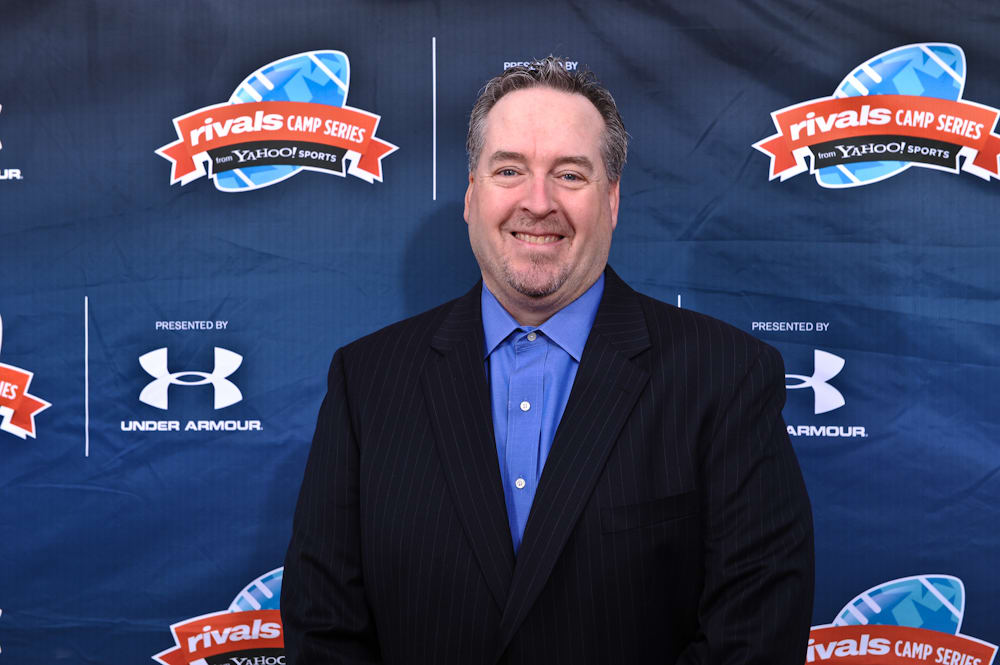WHAT HAPPENED
The NCAA announced Friday that its Division I Council voted to put an end to satellite camps effective immediately, closing a loophole in the rules that allowed college coaches, most famously Michigan's Jim Harbaugh, to serve as guest coaches at camps held well beyond the NCAA-mandated 50-mile limit of their campus.
“The Council approved a proposal applicable to the Football Bowl Subdivision that would require those schools to conduct camps and clinics at their school’s facilities or at facilities regularly used for practice or competition,” the NCAA said in a release. “Additionally, FBS coaches and noncoaching staff members with responsibilities specific to football may be employed only at their school’s camps or clinics. This rule change is effective immediately.”
WHAT IT MEANS
That the NCAA banned satellite camps is not a surprise. However, what is surprising is that the ruling is effective immediately, as many satellite camps had already been scheduled by numerous schools. We all expected that these camps would be shut down.
They became too controversial, and when the SEC complains about something, action is usually taken.
My expectation was that they would be outlawed after this summer, not immediately. I think the SEC’s posture, last year and most recently in the last week or so, that it would lift its conference ban immediately and begin taking part in satellite camps was enough to push this through as quickly as it was. The last thing the NCAA wants is a growing number of participants in satellite camps around the country. If the SEC jumped aboard, things would become quite chaotic very quickly.
It’s hard enough for compliance offices and the NCAA to monitor camps held on a team’s home campus and nearly impossible to monitor what happens all around the country as guest coaches.
What this means is that the Big Ten, and especially programs like Nebraska that don't have a big in-state recruiting base, take a big hit. The schools without a fertile recruiting ground, and Michigan can certainly be included here, will lose what became a great way to sell their product and work with recruits in talent-laden areas like the Southeast and West Coast.
For the student-athletes themselves, they are losing a chance to impress coaches they likely wouldn’t be able to work out in front of without the satellite camps. So, in essence, this helps the rich who are mining diamond after diamond in their recruiting areas and hurts the poor who have to recruit far and wide for the same level of player.
FARRELL'S TAKE
I’m surprised this happened so quickly but this is not stunning news. Once Harbaugh and his staff took their satellite camp participation to another level last summer, these satellite camps were on borrowed time.
I can understand the ruling from the NCAA’s standpoint but, at the same time, I acknowledge that this hurts college football recruiting. Allowing coaches to get into fertile recruiting territories and build relationships leveled the playing field and brought some excitement with it.
Personally, I felt the satellite camps, especially the ones held by Michigan that earned so much national attention, were a bit overrated. I do not think they were the threat the SEC felt they were.
Based on the attention paid to Harbaugh you would have thought he landed multiple four- and five-star prospects out of those camps and that’s simply not the case. Yes, it helped the Wolverines land players like running back Kingston Davis, defensive end Michael Dwumfour and athlete Chris Evans. You could also argue that it helped Michigan in Florida and other places for higher-ranked players like Devin Bush. Yet Michigan’s brand and Harbaugh’s name are big enough to attract national talent and Davis, Dwumfour and Evans were far from the biggest names in the Michigan class of 2016.
For schools like Nebraska, which had so much success with its California camp last year – where it ultimately landed four-star QBs Patrick O'Brien and Tristan Gebbia – this hurts badly. The Huskers had been planning an additional camp in Northern California this summer to keep their recruiting momentum going, so this is a devastating blow.
Overall, I was fine with the satellite camps and felt it gave more opportunities to student-athletes overall. Isn’t that what the NCAA is supposed to want? To cave now to the demands and threats of the SEC and on such sudden terms is a bit alarming.
